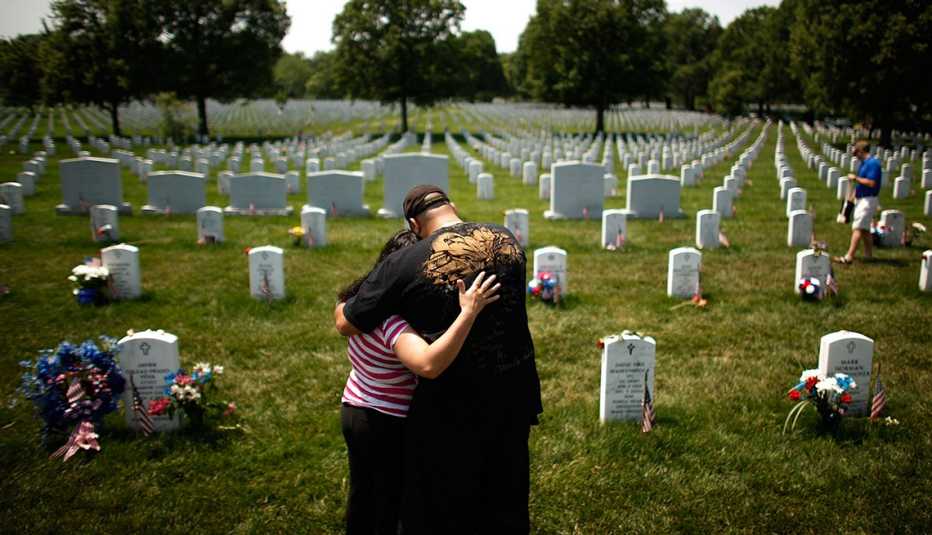Staying Fit


For many Americans, Memorial Day marks the unofficial start of summer and a weekend of grilling, travel, going to the pool and taking advantage of supersale bargains. But for those who have served in the military, and particularly for Gold Star families (the immediate family members of someone who died while serving in the armed forces), the day is far from a happy celebration.
"The intent of Memorial Day is to remember those who have given their lives for the service of our country. …This is the only day the government has said, ‘OK, we're going to remember those who have fallen for us,’" says Joanne Steen, an author, instructor and speaker on grief with a specialty in military loss.


AARP Membership— $12 for your first year when you sign up for Automatic Renewal
Get instant access to members-only products and hundreds of discounts, a free second membership, and a subscription to AARP the Magazine.
Steen, a Gold Star widow, suggests that Americans get out of the habit of wishing people a happy Memorial Day and instead say, “We will do our best to remember."
"To a Gold Star family member, every day is Memorial Day. The void left after losing a loved one is never filled,” says John Raughter, an American Legion spokesman. “The pain of losing a parent, child, spouse or sibling never fully goes away. We can only support them and let them know that the sacrifices that they have made will never be forgotten by our grateful nation.”
Wartime U.S. Military Deaths
- War on Terror: 7,054
- Gulf War: 1,565
- Vietnam War: 90,220
- Korean War: 54,246
- World War II: 405,399
Source: Department of Defense; Department of Veterans Affairs
"When you want to offer condolences to someone, it's best to say, ‘I'm sorry for your loss,’" Steen suggests. “You don't want to say, ‘I'm sorry for the loss of your son, Lieutenant Steen,’ because Mom and Dad didn't bury Lieutenant Steen; they buried Ken.
"Even if the child didn't die in war… I'll say something like, ‘Your son John volunteered to serve to protect and defend his country at a time where people are looking to do us great harm,’" she adds.
Steen advises steering clear of often-used phrases, including comparing someone's loss to another person's death or adding a religious tone. She suggests personalizing the condolences.
"What you can do for a family, which I did recently, is say, ‘I didn't know your son very well, but the times that I spent with him I always walked away feeling good.’ With this parent you would have thought I said, ‘Hey, you just won the lottery!’ It meant a lot to them because it's personal,” says Steen, who wrote We Regret to Inform You: A Survival Guide for Gold Star Parents and Those Who Support Them.
Additionally, Steen says that simply raising your American flag or wearing a patriotic T-shirt (that doesn't say “Happy Memorial Day") is a great way to get the message across.
"As a Gold Star widow, it means a lot when you're out some place and you see someone on Memorial Day that has a shirt that represents the holiday,” Steen says. “It does mean a lot — it means that somebody cares.”
Editor’s note: This article, originally published May 24, 2019, has been updated with additional information.

































































More on Home and Family
13 Ways to Observe Memorial Day During the Pandemic
Virtual walks, ceremonies, concerts and other events to honor the fallenThe Ultimate Sacrifice: 5 Inspiring Stories About America's Fallen Heroes
Videos feature members of the armed forces who gave their lives and those who honor them
The Buddy I'll Never Forget
Heroic stories of friendships forged in war